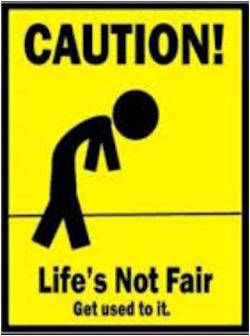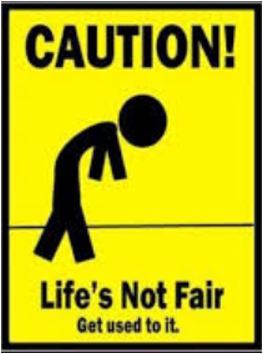
Why Did “It” Have to Be Done?
If you’re someone who is interested in sociology and psychology, the murder of UnitedHealthcare CEO Brian Thompson is a mind bender. An unimaginable tragedy of this magnitude is hard for a normal person to fathom, because normal people have a bias toward normalcy. Abnormal things simply make no sense to the normal mind.
Which brings me to Luigi Mangione, the alleged Brian Thompson murderer. Mangione was valedictorian of his Gilman School graduating class in 2016, a prestigious private school in Towson, Maryland. After graduation, he attended UPenn, then went on to work as a data engineer. Given his link to Brian Thompson, it’s also noteworthy that he apparently had back surgery sometime in 2024.
In a manifesto he was carrying with him when he was captured, the 26-year-old Mangione wrote, “I do apologize for any strife and trauma, but it had to be done.” His words caught my attention, because they are eerily similar to those of the infamous Virginia Tech shooter, Seung-Hui Cho, who killed 32 people at that school in 2007. In the manifesto Cho left behind, he wrote, “You forced me into a corner and gave me only one option.”
Why did Cho feel that he had no other option but to kill 32 innocent people, and why did Mangione believe “it (apparently the murder of Brian Thompson) had to be done?” To any normal human being, nothing Cho or Mangione wrote makes any sense. Though they had very different personalities and backgrounds, both of them seemed to be fixated on injustices done to themselves and others.
In trying to figure out a motive for these two tragedies, it seems that at least one thing Cho and Mangione had in common was their obsession with the reality that life isn’t fair, and no doubt most people would agree with them on that point. Nevertheless, few people respond to perceived injustices with violence. Instead, they pretty much go along with Bill Gates’ simplistic but profound view, “Life is not  fair; get used to it.” Mentally disturbed people like Mangione and Cho apparently reach a point where they are no longer willing to accept the unfairness of life. Instead, they posit themselves as virtuous victims who have no choice but to take matters into their own hands
fair; get used to it.” Mentally disturbed people like Mangione and Cho apparently reach a point where they are no longer willing to accept the unfairness of life. Instead, they posit themselves as virtuous victims who have no choice but to take matters into their own hands
What makes matters worse in the case of Mangione is that he has become a hero to leftists who thrive on the concept of victimhood. As a result, they have flooded social media with posts applauding Mangione’s alleged killing of Thompson. After all, “It had to be done,” so Mangione, seeing himself as the arbiter of good and evil, did it. Cho did not get the positive response that Mangione received, not just because the internet and social media were in their infancy in 2007, but because he killed fellow students rather than the CEO of a major health insurance company. Apparently, bigshot capitalists are fair game.
Social media has long been a cesspool of hate and stupidity, so none of this should come as a surprise to anyone, but TV hosts should know better. Sunny Hostin, the perpetually angry member of “The View,” once again outdid herself by pointing out that the United States was “built on violence,” so we shouldn’t be surprised that Mangione resorted to murder in an effort to right a wrong.
Sorry, Sunny, but America was not built on violence. it was the industrial North that built America via modern technology and a focus on freedom, while the mostly Democrat South languished far behind because of its insistence on clinging to a slave-driven agrarian society that relied heavily on “King Cotton.” Southern Democrats did, indeed, engage in violence against African-Americans, which actually stunted the economic growth of the South.
The North, on the other hand, relied on technology rather than violence, which is what led to America becoming the freest and most prosperous country in the history of the world. When the North finally did resort to violence to save the Union, it resulted in more than 4 million slaves being freed from bondage. Somewhere between 600,000 and 750,000 people died in the war that ended the violence of slavery, so Sunny Hostin has it backwards, as is so often the case with the radical left.
If a smart, well-educated young man like Luigi Mangione believed the insurance industry was unjust, he could have made a commitment to fight for equitable change rather than murdering a father and husband whom he had never met. Believing that “it had to be done” puts him on a par with the now-infamous Madison, Wisconsin school shooter, but, based on his family background and education, it’s hard to believe that he’s just a random lunatic. I would love to hear Mangione explain what he thought executing someone without a trial would accomplish, but that’s unlikely to happen.
So, yes, Bill Gates was right when he said life is not fair, but I doubt Brian Thompson’s wife and two sons will ever “get used to it.”
Robert Ringer is an American icon whose unique insights into life have helped millions of readers worldwide. He is also the author of two New York Times #1 bestselling books, both of which have been listed by The New York Times among the 15 best-selling motivational books of all time.
From robertringer.com